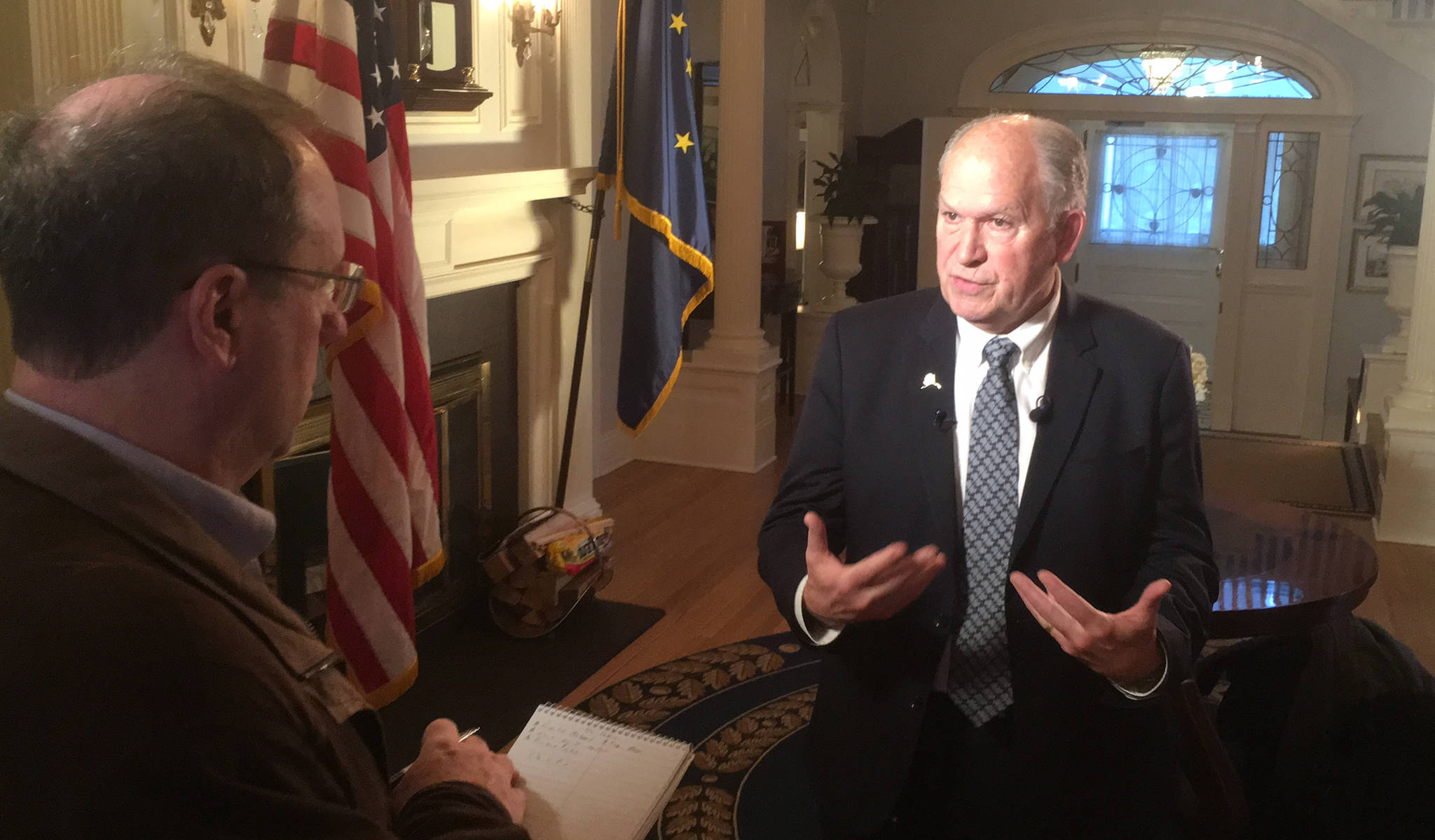Gov. Bill Walker is abandoning a push to spend up to $10 million on oil and gas survey work in the Arctic National Wildlife Refuge.
In a Monday letter to the co-chairs of the Alaska Legislature’s House and Senate finance committees, Walker asked that his $10 million budget request be changed: $8.3 million of the request should go to a new statewide 911 call center envisioned by Walker, and $1.5 million should go to the trans-Alaska natural gas pipeline project.
In a Tuesday morning conversation with reporters, Walker said that public safety is his top priority, and he supports legislative action on elements of his public safety plan unveiled in October. That 68-part plan called for “exploring (the possibility) of a consolidated communications center,” but Walker has now placed the idea at the forefront and is calling for money to create it.
Alaska is one of only three states without such a center, according to Walker’s letter to legislators.
Congress approved oil and gas drilling in ANWR with a December vote, and in February, Walker suggested spending $10 million on seismic surveying to cultivate corporate interest in drilling leases there. During a hearing of the Senate Finance Committee, the idea was supported by Andy Mack, commissioner of the Department of Natural Resources.
Since that hearing, Walker has made a push to improve public safety amid a surge of crime caused at least in part by the opioid drug-abuse epidemic. The state has called for more spending on the state’s prison system, prosecutors and troopers, and Walker’s letter said a 911 call center is necessary to improve communications and response times.
Ninety-two percent of the state’s geographic area lacks what is known as “enhanced 911,” which provides (among other things) location information to dispatchers. Callers from cellphones are frequently prompted by emergency operators to provide their locations, and in instances where they cannot, response times lag as rescuers search for the caller.
Walker’s proposal calls for creating a $9.5 million Anchorage dispatch center that would combine the services of existing facilities in Fairbanks, Wasilla and Soldotna. Troopers also operate a dispatch center in Ketchikan; that center would remain open.
Construction of the center in an existing state building would require the ANWR money, the cancellation of a planned public safety driver academy, and redirecting $150,000 that had been earmarked for a feasibility study to determine whether the dispatch center is necessary.
If approved, the governor’s proposal envisions the center opening in late 2019 or early 2020.
Legislators will have the final word on the proposal: Money for the call center is contained within the state’s capital construction budget, which is under consideration this week in the Senate Finance Committee.
• Contact reporter James Brooks at jbrooks@juneauempire.com or 523-2258.

